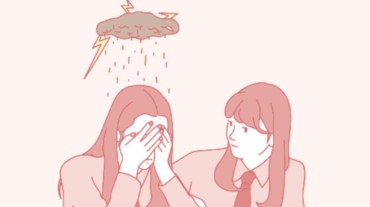
To lose someone to suicide is not easy. Apart from the fact that a life is lost, it affects the deceased’s family, friends, and the community at large. Every death by suicide can leave behind a plethora of questions about what may have triggered it and also an associated helplessness.
With many people suffering from mental health issues or dying by suicide—suicide is a silent pandemic that we do not focus much on. However, it is important to understand that suicide is a preventable cause of death and can be triggered by something other than mental illness as well.
As per recent data from the Global Burden of Disease project by the WHO, suicide rates in Indian men and women are 1.5 and 2 times higher than the global figures. Suicide is also the number one cause of death in the country, especially in the 15 to 39 age group. Despite these staggering numbers, there are several myths associated with suicides. This article attempts to clear some of these.
Myth 1: Once a person exhibits suicidal tendencies, they will continue to remain the same throughout life
The heightened risk of suicide is often situation specific and lasts for a short term. While such thoughts may come and go, identifying the signs early on can enable the person to seek help and bounce back.
Myth 2: It is not right to talk about suicide to a person with mental illness or to someone who is contemplating it
Often, people who exhibit suicidal tendencies or have certain mental health conditions fear opening up to someone due to the stigma associated with it. Talking about how they are feeling can actually help them analyse their decision and feel better. It can be a good way to avert such feelings.

Myth 3: Only those with mental health disorders die by suicide
Suicidal tendencies can indicate deep unhappiness. However, this may always be due to an underlying mental health issue. Many of those who take their life do so due to reasons other than this as well.
Myth 4: Suicides happen suddenly without warning
People with suicidal tendencies often exhibit certain warning signs, which could be verbal or behavioural. It is imperative for friends and family members to look out for any such signs and take preventive action at the earliest.
Myth 5: Only those from lower socio-economic backgrounds die by suicide
It is wrong to assume that only people at the lower end of the economic spectrum tend to take their lives. Suicide is a global public health concern and the reasons could be manifold.
Myth 6: Suicide is hereditary
Suicide is not a condition but a behaviour triggered by some underlying cause—and in some cases no reason at all. Although there are instances where there have been multiple suicides in a family, it is not hereditary always. Genetic factors play an important role but are not necessary in every case. What may be similar is the emotional and social environment in a family. While some cope better, others may not be so resilient.
In conclusion
Suicide is a public health crisis and needs urgent attention and intervention. It is not an easy decision and the person may be engulfed in a constant feeling of hopelessness and self-loathing to have taken the extreme step.
Select Topics of your interest and let us customize your feed.
PERSONALISE NOWAlso, listen:
An individual with suicidal thoughts would never ask for help openly. It is therefore important for those around them to notice anything unusual and identify some signs. Familial relationships play a decisive role in suicide attempts as well as prevention.
Hence, it becomes essential for family members to provide adequate care for the concerned individual undergoing mental health issues.Dealing with the issue at the outset can help save a life.